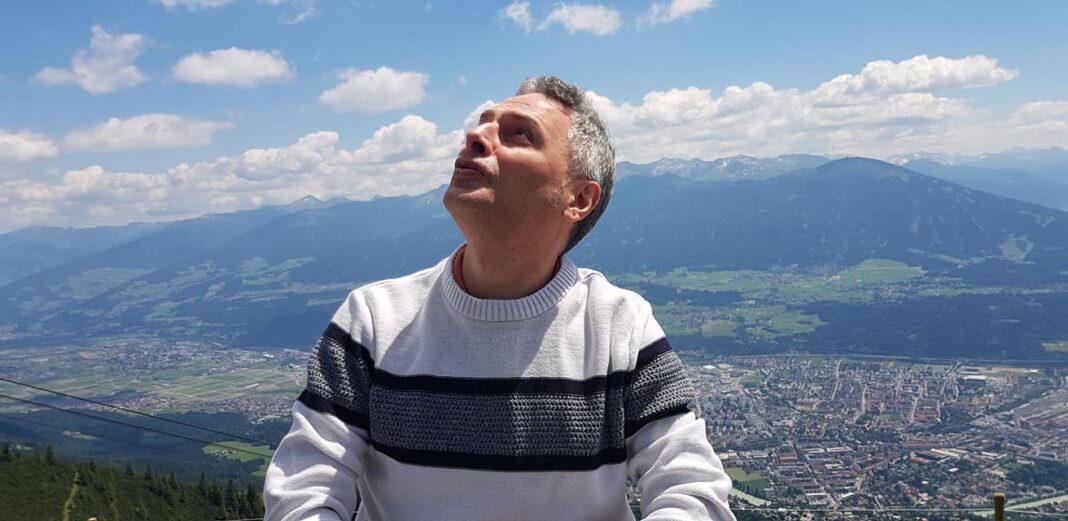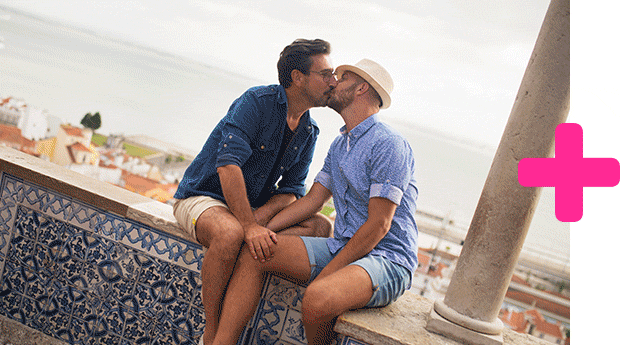“It’s not just in Europe and the Americas that there are spaces of freedom for LGBTQ+ people,” says Ioannis Ikonomou.
The 59-year-old polyglot is perhaps entitled to make such a sweeping statement. As a traveller, he’s visited about 80 countries and lived in five of them. But that’s just the start of his worldliness. He was born in Greece, studied in the United States, lives in Belgium and is married to a Polish man. Fluent in 32 languages, he’s held a position as a translator at the European Commission since 2002. He has a degree in linguistics and a postgraduate degree in Middle Eastern languages and cultures.
Ikonomou’s fascination with languages began as a child, when he started learning them out of an interest in other cultures. In fact, the gay translator loves talking to the locals and going to places that only they go to (places that it wouldn’t occur to a tourist to visit), as well as showing an interest in the social problems many countries are struggling with domestically. He sat down with Pink Ticket Travel to share some words of wisdom.
Has being fluent in several languages saved you from tourist traps?
Of course. By speaking many languages, I can talk to the locals better and not follow the popular tours, which don’t allow you to see the real country, because these tours only take you to see the most impressive things like the Colosseum in Rome, or the Eiffel Tower in Paris, which are also important but are not everything. For me, it’s essential to get to know people’s daily lives. Knowing the local languages makes it easier for me to have contact with the locals. And they’ll take me to places where foreigners don’t go. This has saved me from tourist traps.
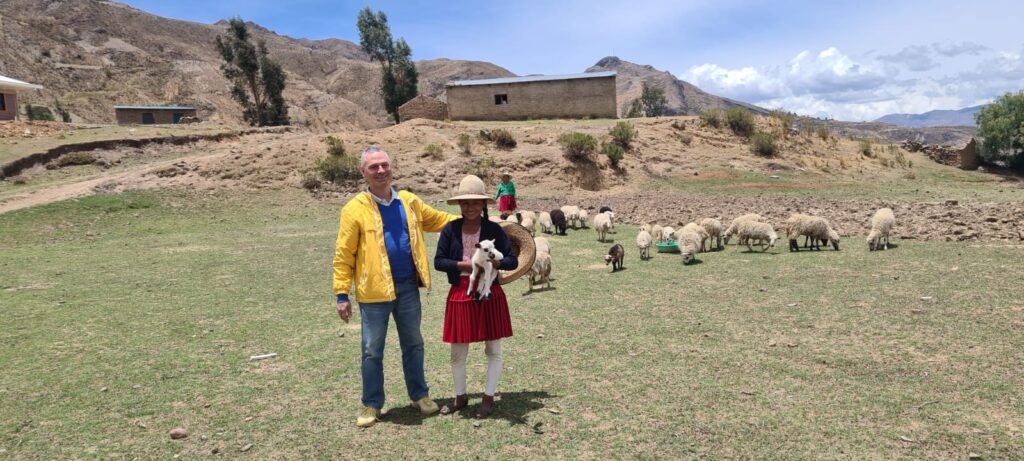
You’ve been to so many countries. Which ones did you like the most and least?
I’ve been to 80 countries, I guess. Several of them—Brazil, Cuba, Turkey and others—I’ve visited so many times. When I travel, I look for the yin and yang. In other words, the good and the bad. I’ve spent a lot of time in the favelas of Rio de Janeiro, and I’ve also been to the upmarket neighbourhoods where the country’s elite live. I’ve seen the worst and the best. I like countries that are different from the ones I live in, Belgium and Greece. I really like the countries that some refer to as “Third World,” although I don’t like that terminology—places where I have to make an effort to adapt. For example, in Latin America, there is no notion of punctuality, while in Japan, it’s the opposite; punctuality is almost a religion. But I observe the bad things with modesty. I’m not there to teach people how to live; I’m there to let them teach me and to open up new worlds to me, so I don’t criticize too much.
I’ve learned that Latin America’s way of living without punctuality has many things to offer. People are more relaxed, and time doesn’t have the same meaning as in Europe or Japan. I can’t say that I liked country X more than country Y; I travel to learn.
You’ve probably noticed some differences between countries when it comes to being LGBTQ+.
When I travel, I try to see the country with open eyes and not through the glasses of the European, the privileged white man. It’s about criticizing less and learning more. In many so-called Third World countries, there are no legal rights for LGBTQ+ people; they are not protected by law. But society might accept their way of expressing their sexuality and identity. In India, there are the hijras, trans women, who lead normal lives as women. We have to understand other societies without criticizing them too much. We have to recognize the fact that in many cultures, such as India, Pakistan, Thailand and Indonesia, for example, LGBTQ+ people, even with many problems, can live a full life without having to deny themselves. It’s not just in Europe and the Americas that there are spaces of freedom.
I’ve been visiting Cuba for 30 years, about 18 times. In the beginning, gay, lesbian and bisexual people didn’t have so much freedom. Now, Cuba is a model for the Americas—same-gender marriage and child adoption are legal. I’ve been to Russia twice, when Putinism wasn’t as prevalent as it is now. There were even gay clubs, and there was a bit of freedom, but not much. The first time I was in China, there was freedom and gay clubs. Through my friends there, I think there still is, but it seems there’s less freedom now, although they aren’t openly persecuted. I always try to understand the difference between me as a traveller, with all the freedom I have, and the persecution that these people, my friends, can be exposed to. I would like to find ways to help them, but I don’t know exactly how.
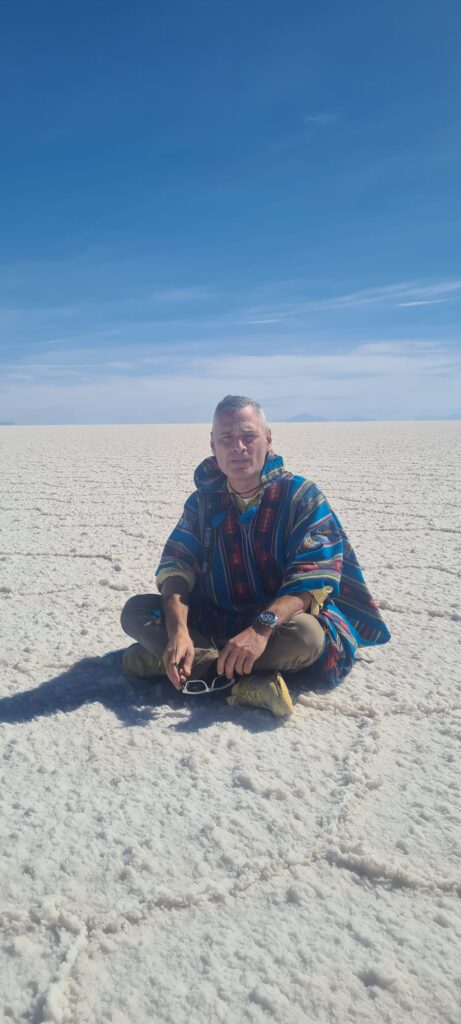
Tell me what it’s been like to live in five countries.
After completing my studies in Greece, I lived in New York when I studied at Columbia University, then at Harvard in Boston for six years. Then I went to Austria. I also lived in Luxembourg for a couple of years, a year and a half in China, and then Belgium. Of course, each country was very different. The first time I went to the United States, I felt free as a gay man, but I was also living in the most progressive part of the country. As it was very expensive to rent a house in Cambridge, I had applied for free accommodation in student housing and offered to do community work, helping new students integrate. A lot of people had applied, and I had to write a bit about myself, so I plucked up the courage and said that I could guide new students by getting to know their differences as a gay man. The authorities who chose the candidates immediately accepted me; they saw that I could help people with different backgrounds. This helped me empower myself to try to help other people accept themselves.
Tell me about a time when a country surprised you.
When I was in Norway in the 1980s, I saw young gay men introducing their boyfriends to their parents and taking them home without introducing them as a “friend.” I could never have imagined that in Greece in the ’80s, a young gay man taking his boyfriend to dinner at his parents’ house. But I saw this not only in the First World. From Norway to India, I came to understand that you can accept yourself and be accepted by society—a great lesson that wasn’t easy to understand at first.
What kind of changes have you seen over the course of your travelling life?
When I started out as a young man, I noticed a big, positive difference: social progress. Cuba today is freer than it was 30 years ago. Perhaps the worst case is Russia, where society has been led by the government to persecute gay people. In Turkey, where I’ve been 14 times, gay people used to have more freedom. Now, you have to have the courage to come out there. Pride is banned, and society is moving toward religious conservatism. By contrast, in most Latin American countries, I’ve seen a lot of progress. Though I’m afraid of the progression of this new religious conservatism—I see it to some extent in both North and South America.
What are some difficult situations you’ve faced?
I’ve had to adapt on several occasions. In Iran, it was terrible. I was there years ago, and LGBTQ+ people lived in fear. It was the most repressive I’ve encountered. I had a boyfriend there; we didn’t sleep in the same bed, because he was afraid that at any moment the police might come into the hotel and find us both in the same bed. So he preferred to sleep on the floor.
You are very involved in social causes when you travel, visiting places and observing things that tourists often don’t want to see.
Having a sense of social justice humanizes people. I could have lived my entire life without taking an interest in disadvantaged people, but what a poor life I would have had if I had only lived with people like me. What defines me as a human being is my empathy with disadvantaged communities and my interest in their lives. Not as a tourist, not as a human zoo, no. But looking at them with empathy. I’m not idealizing, because poverty frequently dehumanizes people, sometimes even making them dangerous. I’m no Mother Teresa; I don’t aspire to save the world, because I can’t, but at least I can listen to their stories, share a meal or have a conversation with them. They can teach me something that a thousand years of study wouldn’t teach me.
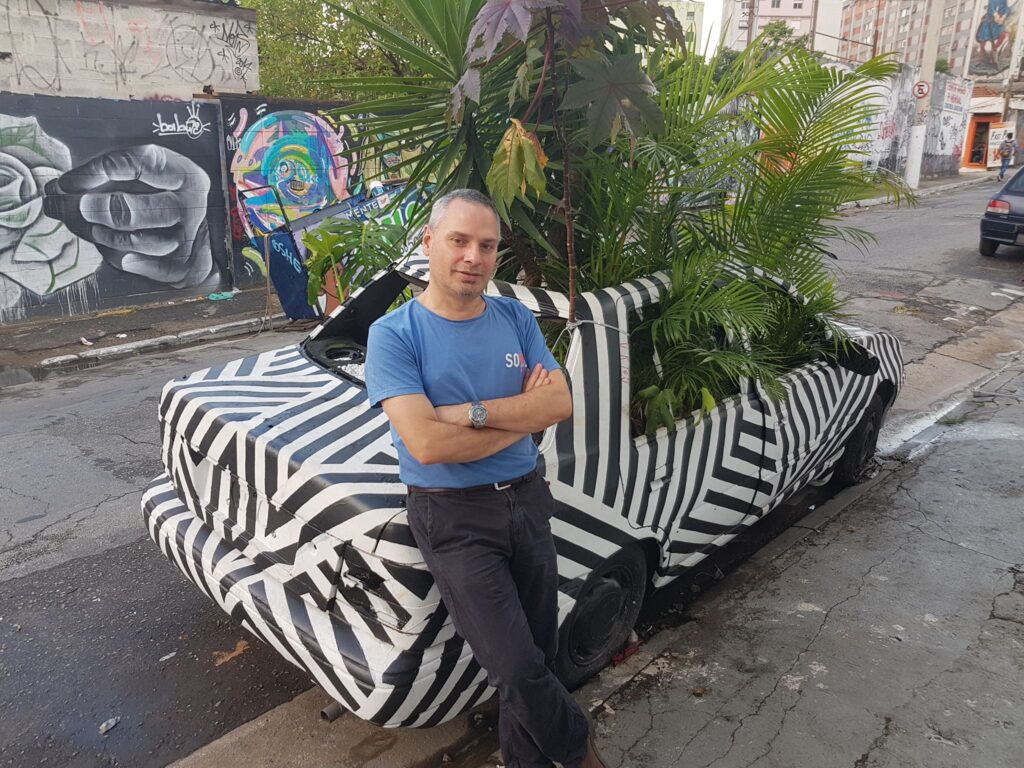
What advice would you give to an LGBTQ+ traveller who wants to explore the world and get to know as many cultures as you have experienced?
My advice is to be very curious, to share in different lives and not always follow the herd by going to traditional tourist spots. Don’t focus on photos for Instagram; try to enrich yourself as a human being. How’s that? By opening your mind and your heart, and becoming part of the locals’ lives; being a traveller and not a tourist. Because a tourist is for consuming, but travelling is for getting to know the world, and yourself as well.
What travel plans do you have for this year?
I’m always looking for what the Japanese call ikigai, meaning something that gives meaning to life—a reason to live. So this year, I went back to Bolivia for a month. I had previously stayed in Cochabamba, but I didn’t know much about La Paz, and I was very impressed. I have many things to discover and learn, so I decided to hurry up and learn Aymara, the country’s second-most-spoken language. I’ve already started studying it, and I’m going to a small village on Lake Titicaca, about 100 kilometres from La Paz. I also want to learn about the struggle for the rights of Indigenous people and, at the same time, continue learning other languages that I’ve started in recent years, such as Japanese, Albanian and Maltese.
This interview was conducted in Portuguese and translated by the writer into English. It has been edited for length and clarity.

